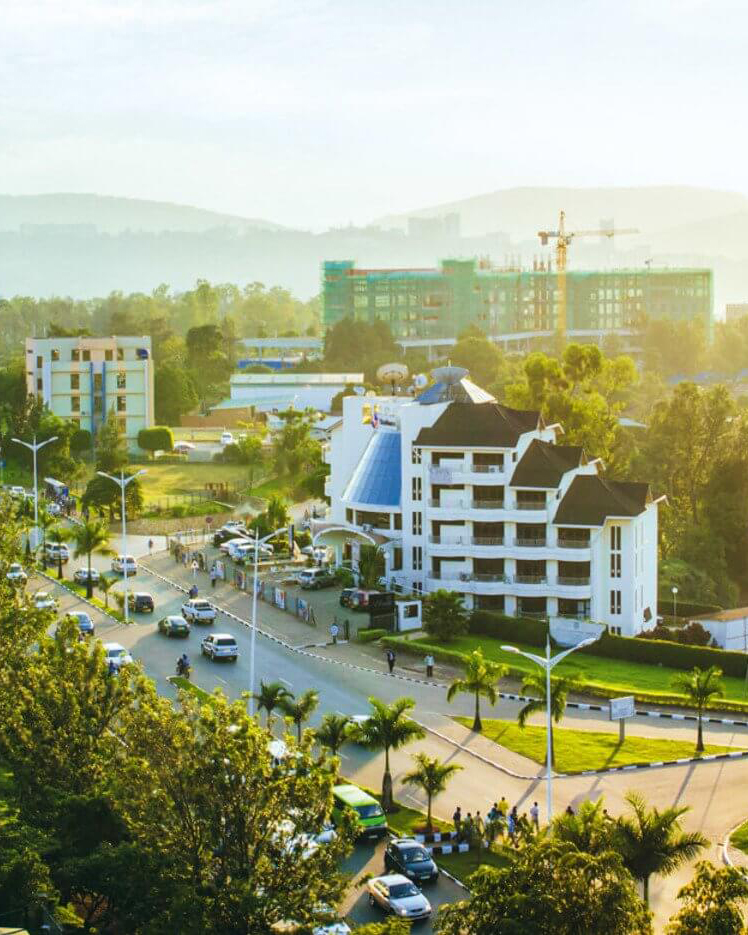
Dynamic Gateway to Discovery – Kigali, celebrated for its cleanliness and order, is the heart of Rwanda's cultural and economic revival. This progressive city offers a seamless blend of lush hillsides, vibrant street markets, and poignant historical sites, including memorials that honor its rebirth from a turbulent past.
Start Planning1,300 meters (4,265 feet) to 1,600 meters (5,250 feet) above sea level
The average temperature ranges from 15°C (59°F) to 27°C (81°F)
1.1 million
Most resorts offer wireless internet connections, as do airports. For maximum connectivity throughout your trip, consider purchasing a local SIM card at the international airport upon arrival.
MTN and Airtel offer great coverage in Rwanda.
Many nationalities can obtain a visa on arrival or apply online for an East Africa Tourist Visa if planning to visit multiple countries in the region.
Kigali International Airport is the main entry point for international travelers and is well-connected to major cities across Africa and select destinations in Europe and the Middle East.
Peak Season: The dry seasons from June to September and December to February are the most popular times to visit, offering sunny days ideal for exploring the city and surrounding countryside.
Off-Peak Season: The rainy seasons from March to May and October to November bring lush greenery and fewer tourists, though some outdoor activities may be disrupted by rain.
Kigali Genocide Memorial: A profound site dedicated to the memory of the victims of the 1994 genocide against the Tutsi, offering educational displays and serene gardens.
Nyamirambo Women's Center: A community center offering cultural tours and workshops that showcase the vibrant life in one of Kigali's oldest neighborhoods.
Inema Arts Center: A dynamic art gallery showcasing contemporary African art, with pieces created by Rwandan artists.
Caplaki Craft Village: A market where local artisans sell handmade crafts, textiles, and traditional Rwandan items.
Yes, it is worth visiting. This hotel gained fame from the movie "Hotel Rwanda" and has historical significance. It offers a chance to learn more about Rwanda's history and enjoy its amenities.
It's important to carry enough cash, as many lodges and camps do not have facilities for tipping with credit cards and might not have enough cash for change.
A common practice is to tip $10-$15 per guest, per day. This usually goes into a communal tip box and is shared among all the lodge or camp staff, including those working behind the scenes.
For individuals who guide you through your safari (guides and trackers), a typical tip is about $10-$20 per person, per day.
At restaurants, tipping about 10% of the bill is customary.
Always ensure that your tips are given as a token of appreciation for good service, rather than out of obligation.
Drones are prohibited unless you have obtained a specific permit. Customs conducts scans of all bags upon arrival and will confiscate any drones, holding them until your departure day.